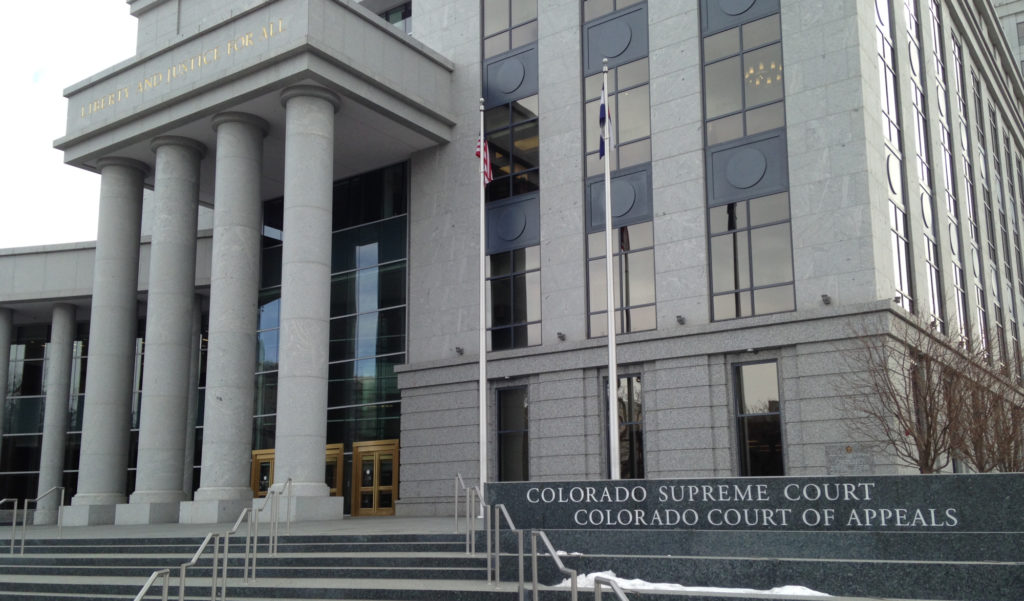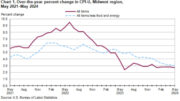By Jeffrey A. Roberts
CFOIC Executive Director
The Colorado Supreme Court moved closer Tuesday to possibly adopting a statewide standard for guiding judges’ decisions to seal or suppress court records in criminal cases.
The justices held a public hearing on proposed Rule 55.1 that featured several suggested revisions from Steve Zansberg, a First Amendment attorney who is president of the Colorado Freedom of Information Coalition.
Four years ago, Zansberg urged the judicial branch’s Rules of Criminal Procedure Committee to consider a uniform standard for restricting access to criminal court records, noting that the lack of such a rule forces each trial court judge in Colorado to determine the legal principle to apply whenever there are disputes over public access. The committee’s chairman, Colorado Court of Appeals Judge John Dailey, acknowledged Tuesday that he eventually sent Zansberg a “cryptic note,” rejecting his proposal as unnecessary.

But the committee reconsidered the idea after The Denver Post in 2018 showed that more than 6,000 court cases had been hidden from public view because of judges’ orders to suppress them, often with no ruling to explain their reasoning.
“The issue comes back to haunt us, so to speak, when … we discover there are scads of cases out there of which information is being closed off to the public — information about entire case files —for an indefinite period of time, with little or no justification given for closing off these files,” Dailey said during the hearing.
Zansberg addressed the Colorado Supreme Court on behalf of CFOIC, the Colorado Press Association and the Colorado Broadcasters Association. As he did in written comments submitted in May, he commended the Rules of Criminal Procedure Committee for recommending a statewide standard “that will allow the public to monitor the workings of the courts. And that occurs in large part through access to judicial records, not merely proceedings.”
But Zansberg also discussed several concerns about the rule as currently drafted, including the standard to be used for overcoming the public’s right to inspect court records. Using a “substantial” rather than a “compelling” governmental interest is insufficient “to adequately protect the public’s presumptive right of access,” he said.
“The compelling standard provides the appropriate weight to the presumption of access,” Zansberg said. “Either compelling or overriding, something that indicates more than merely administrative burdens on the court or things of that sort.” He noted that a “compelling standard” has been adopted by some other states, and it “doesn’t automatically bar a ruling” that certain material in court files, such as information about confidential informants or medical histories, should remain sealed.
Zansberg also urged the justices to reject a portion of the rule that would automatically seal all the motion papers regarding any request for sealing or suppression. Disclosing documents that explain legal arguments and precedents for suppressing records would not “by themselves cause the release of the sensitive information that is the subject of such motions,” he said.
“That’s the reason why we have a presumption of public access — so the public can understand what the parties are arguing, what arguments the judge has considered and rejected.”
Also “overbroad,” he contended, is a provision in the proposed rule that mandates the closure of any judicial proceeding convened to consider a sealing or suppression motion. Doing so would violate “the public’s independent — and as this court has recognized — constitutionally protected right to attend judicial proceedings in pre-trial cases.”
Dailey told the Colorado Supreme Court that New Hampshire and some other states have used “substantial interest” as their standard to override the presumption of public access to court rules.
“We did not go with compelling interest because compelling interest, we thought, was a loaded term used in constitutional law,” he said. “And usually in the use of compelling interest, you might as well not do more balancing, you’ve already got a determination made. We thought the right to a fair trial, the right to victims’ privacy and witnesses’ privacy, defendants’ privacy were substantial interests … rather than compelling.”
Fourth Judicial District Court Judge Deborah Grohs, who chaired a subcommittee on the proposed rule, said motions to seal or suppress — and any court proceedings on such motions — should not be public because “there are certain things that are sensitive to the case and sensitive to safety concerns and fair trial. Sometimes things have to be kept amongst the judge and the parties, and having the motion itself be accessible to the public would, indeed, be releasing that information that necessarily would be in the motion. And when we have a hearing on that motion we would necessarily be discussing that sensitive topic.”
“We know the right to access is important, and we understand the First Amendment. There are many other concerns that are equally as important and sometimes it has to weigh in favor of keeping these things private,” Grohs said.
Chief Justice Nathan Coats said the Colorado Supreme Court will consider the proposed rule and the public comments and “make some determinations. And if we need to get further input, we’ll do it that way.”
Follow the Colorado Freedom of Information Coalition on Twitter @CoFOIC. Like CFOIC’s Facebook page. Do you appreciate the information and resources provided by CFOIC? Please consider making a tax-deductible donation.




